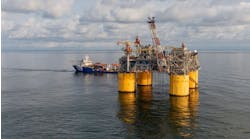Gazprom, Turkey sign deal for Turkish Stream gas deliveries to start in 2016
Offshore staff
MOSCOW – Russia and Turkey have signed an agreement on operational commissioning and for gas deliveries via the Turkish Stream to commence in December 2016, said head of Gazprom Aleksey Miller. The agreement was signed by Miller and Turkish Minister of Energy and Natural Resources Taner Yildiz.
Construction of the pipeline was agreed between the two in 2014, and the stream is slated to travel from Russia, transit through Turkey, and stop at the Greek border, giving Russia access to the southern European market. The pipeline will have an annual capacity of 63 bcm (2.22 tcf/yr). It will replace the South Stream, which was suspended over the EU’s stance on Russia.
Gazprom then signed an agreement with China’s CNPC to supply 30 bcm (1 tcf) of gas annually via the western route. The pipeline is part of a number of Gazprom-China deals worth an estimated $400 billion over the next 10 years. The bigger pipeline is Power of Siberia line, which is projected to supply 38 bcm (1.3 tcf) of gas annually over a 30-year period beginning in 2018, according to Forbes.
Gazprom CEO Alexei Miller and China National Petroleum Corp. Vice President Wang Dongjin signed an agreement on Friday defining the conditions of the natural gas supplies from Russia to China via the Western route.
“The main priority projects of the bilateral cooperation between the companies have already been defined for these past five years,” stated Miller, on Gazprom’s website. “It concerns Power of Siberia – the eastern route of gas supply to China. Then it is the western route – signing of a contract, construction of a gas pipeline and what is crucially important is that we will negotiate on increasing the volume of gas supplies to China via the western route and building up the relevant capacities.”
He added: “Another priority area of activities for these five years concerns the possibility of supplying gas to China from the Far East. As for this document, it should also be stressed that it outlines the main areas of cooperation, but actually they are universal for the gas industry. It should be pointed out that it also regards sci-tech cooperation and personnel training.”
05/13/2015


